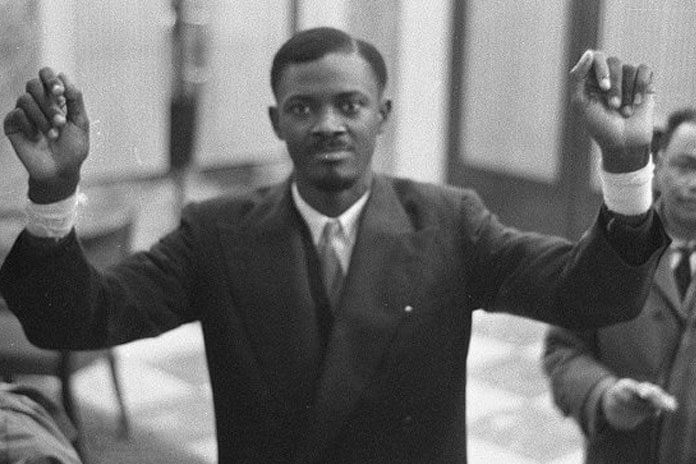(from the Preface to THE ASSASSINATION OF LUMUMBA, by Ludo de Witte, Verso, 2001)
A good number of the writers examining Washington’s role have analysed the Congo crisis in terms of the Cold War. Their discussions are based on the argument put forward by Washington and London at the time to justify Western intervention — that Soviet expansion needed to be checked.
But does this argument stand up to the facts? It is true that the year 1960 surely marked a climax in the East-West conflict. On 1 May 1960, a U2 spy plane was brought down in Soviet air space, although Eisenhower totally denied the existence of aerial espionage. At a summit meeting in Paris, the Soviet leader Nikita Krushchev called Eisenhower a liar. The summit was cancelled.
The Congo crisis turned into a war of words. Washington, London and Brussels accused Moscow of wanting to get its hands on central Africa. Lumumba was called a “communist,” a “crypto-communist,” or at the very least a politician who was willing to open the door to Soviet intervention. During the UN General Assembly in the autumn of that same year, Krushchev replied vehemently, accusing Hammarskjold of being an agent of imperialism, intent on safeguarding the UN’s interests in the Congo.
On closer inspection, however, the Congo crisis was not really a war between East and West with hegemony to central Africa at stake. Moscow was certainly not opposed to extending its influence to the world nor to having more control, but Stalin’s heirs were even more interested in stability and peaceful coexistence with Washington. The latter was a critical factor in their policies towards Africa, which after all was part of the Western hemisphere. The Kremlin had neither the political skill nor the means to threaten the West’s supremacy in the Congo and this was clear to most observers at the time. The Kremlin certainly did not want to support Lumumba unconditionally during the Congo crisis; it was more interested in a propaganda victory. Krushchev denounced Western intervention to reinforce his diplomatic position in the Afro-Asian world.
The destruction of Congolese nationalism was a devastating blow to those struggling for liberation throughout Africa, but it did not worry the blinkered conservative bureaucrats of the Kremlin: for them Lumumba and African nationalism were throwaway items. Krushchev told the US ambassador in Moscow off the record that “he was sorry for him (Lumumba) as a person when he was in prison but that his imprisonment actually served Soviet interests.” For Moscow, Lumumba’ s defeat was no more than a propaganda coup. “With respect to Congo, ‘K’ said what had happened there and particularly the murder of Lumumba had helped communism.” On the whole, Moscow’s support for the Congolese nationalists was only ever a symbolic gesture. Was it not significant that the US ambassador to the Congo, who inundated Washington with messages about the Soviet danger in central Africa, recognised during a (behind closed doors) interview with a US Senate commission that the Kremlin’s support for the Lumumbists was never more than a “trickle”?
Lumumba advocated a complete de-colonisation that would benefit the population as a whole. He had, therefore, to be stopped. In order to get public opinion on their side, Western strategists invoked a series of noble objectives. Just as the Belgian king Leopold II had legitimised the conquest of the Congo by presenting it as liberating Africans from the hands of Arab slave traders, and colonial exploitation had been justified as a civilising enterprise, so in 1960 the nationalists were destroyed in the name of protecting Africa from Soviet imperialism. “Saving Africa from the Cold War” or “containing Soviet influence in the process of de-colonisation” were the coded phrases used by the West.
Lumumba was not a communist. He was a nationalist, prepared to accept help from any quarter provided that it was unconditional help which did not compromise sovereignty.

